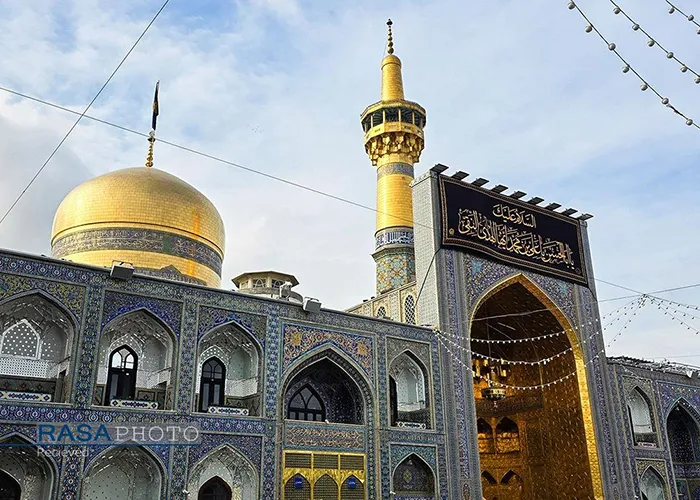Editorial – volume01 Issue19
The Importance of Media Literacy and Care from an Islamic Perspective
As we approach two significant global events, Global Media and Information Literacy Week (24-31 October) and the International Day of Care and Support (29 October), it is essential to reflect on the importance of both in light of Islamic teachings. Both media literacy and care are deeply ingrained in Islamic ethics, providing guidance on how to navigate misinformation and the duty of care toward others.
Global Media and Information Literacy Week: An Islamic Perspective
The Global Media and Information Literacy (MIL) Week promotes the importance of being informed, discerning, and critical in how we engage with media. In today’s world, where misinformation and incomplete narratives are rampant, the ability to navigate and critically assess media content is more important than ever. Islam offers profound guidance on how to approach information, with several key principles outlined in the Quran and Hadith.
Be Vigilant Against False or Incomplete Information
The Quran warns believers against acting upon unverified information. In Surah Al-Hujurat (49:6), Allah SWT says:
یا أَیهَا الَّذِینَ آمَنُوا إِن جَاءکمْ فَاسِقٌ بِنَبَأٍ فَتَبَینُوا أَن تُصِیبُوا قَوْمًا بِجَهَالَةٍ فَتُصْبِحُوا عَلَی مَا فَعَلْتُمْ نَادِمِینَ
“O you who have believed, if a disobedient one comes to you with information, investigate, lest you harm a people out of ignorance and become, over what you have done, regretful.”
This verse highlights the importance of critical thinking and verifying facts before accepting or sharing them. In the modern world, where social media platforms are filled with half-truths, rumours, and unverified stories, it is imperative for Muslims to seek the truth before passing on any information. This aligns with the core goal of media literacy: to evaluate content critically before engagement.
Listen to Various Views and Choose the Best
The Quran also advises that when exposed to different opinions or media content, we should critically evaluate and select the best. In Surah Al-Zumar (39:18), it says:
الَّذِینَ یسْتَمِعُونَ الْقَوْلَ فَیتَّبِعُونَ أَحْسَنَهُ
“They are those who listen to speech and follow the best of it.”
This is a reminder that not everything we hear or see is worth following. Islam encourages thoughtful reflection and discernment, suggesting that we must actively seek out the most truthful and ethical narratives. In the context of media literacy, this means analysing multiple sources of information and choosing the most accurate, reliable, and morally sound.
Combatting Falsehood and Rumours
Islam goes beyond simply avoiding the spread of misinformation; it calls for actively countering it. In Surah Al-Nur (24:12), Allah reproaches the believers for not challenging false rumours:
لَوْلَا إِذْ سَمِعْتُمُوهُ ظَنَّ الْمُؤْمِنُونَ وَالْمُؤْمِنَاتُ بِأَنفُسِهِمْ خَیرًا وَقَالُوا هَذَا إِفْک مُّبِینٌ
“Why, when you heard it, did not the believing men and women think well of their own people and say, ‘This is an obvious falsehood’?”
This verse illustrates the responsibility of Muslims to refute harmful falsehoods and protect the dignity of others. As media consumers and content sharers, Muslims must take an active role in dispelling misinformation, echoing the broader media literacy goal of promoting truth and countering falsehoods.
International Day of Care and Support: The Islamic Approach
Care and support are fundamental aspects of Islamic ethics, deeply rooted in the principles of empathy, compassion, and selflessness. As the UN highlights the significance of care work—both paid and unpaid—Islam has long upheld the values of caregiving and community support, seeing them as pathways to spiritual fulfilment.
The Virtue of Care in Islam
Caregiving is not only a social duty in Islam but also a spiritual one. From the example of Lady Fatima (AS), who earned the title “Mother of Her Father” (Umm Abiha) due to her deep care for the Prophet Muhammad (PBUH), to the countless Hadiths that emphasize the reward for caring for others, Islam places immense value on looking after those in need.
In one narration, Imam Sadiq (AS) states: “Sitting beside a sick person (and caring for them) is better than praying in the mosque. “This Hadith underscores the idea that serving others, especially those in need, holds immense spiritual merit, often outweighing even ritual acts of worship. Care and compassion are seen as vital aspects of faith, with far-reaching spiritual rewards.
Service to Humanity as a Path to Allah SWT
Islamic teachings frequently link service to others with proximity to Allah SWT. Numerous Quranic verses and prophetic traditions emphasize that supporting and helping others is a means of drawing closer to Allah SWT. Caring for the sick, supporting the vulnerable, and uplifting the needy are seen as acts of worship in themselves.
This emphasis on care as a moral and religious duty aligns closely with the UN’s focus on the importance of care work. In Islam, such acts of care are not just encouraged but seen as essential to achieving spiritual growth and fulfilling one’s responsibilities as a member of the Ummah (community).
Conclusion
Both media literacy and the ethos of care are deeply interwoven into the fabric of Islamic teachings. As we mark Global Media and Information Literacy Week and the International Day of Care and Support, it is an opportune moment to reflect on how these global principles resonate with the ethical and moral frameworks established by Islam. By promoting critical thinking, vigilance against misinformation, and the values of compassion and care, Muslims are reminded of their duty to uphold truth and serve humanity, fostering a better, more just society.
editor's pick
news via inbox
Subscribe to the newsletter.




